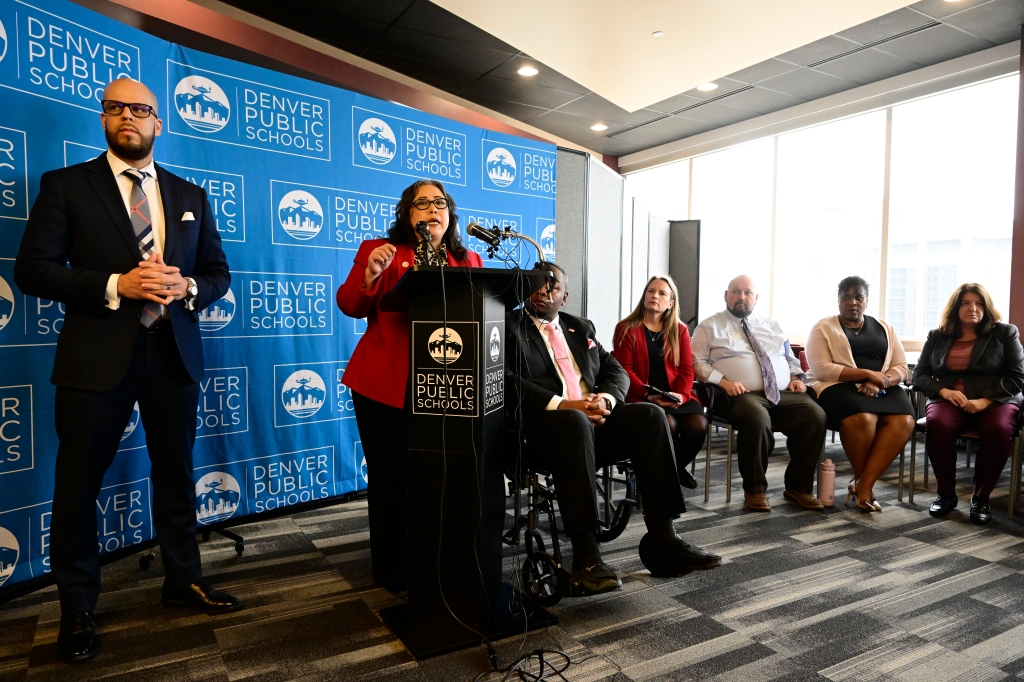
Denver school board’s closed-door meeting was legal, DPS tells judge
Last Updated on June 17, 2023 by Admin
[ad_1]

Denver Public Schools’ Board of Education properly noticed and convened an executive session when members met behind closed doors the day after the March shooting inside East High School, the school district’s attorney argued in court Friday.
The Denver Post and five other Colorado news organizations are suing DPS, alleging the school board violated the Colorado Open Meetings Law and seeking the release of the recording of the closed-door meeting.
“This is really just about a gotcha case,” DPS attorney Jonathan Fero told Denver District Court Judge Andrew Luxen during Friday’s hearing on the news organizations’ lawsuit.
The school board met in an executive session — which is closed to the public — on March 23, the day after a student shot and injured two administrators inside East, the city’s largest high school.
When board members emerged from the meeting five hours later, they announced they would temporarily suspend a 2020 board policy banning school resource officers, or SROs, allowing armed police to return to high schools for the remainder of the academic year. (In a separate meeting Thursday, the board fully reversed that 2020 policy, allowing officers to return more permanently.)
The lawsuit by the media coalition alleges the school board violated state law in two ways. First, the lawsuit alleges, the board did not properly declare the meeting an executive session because it wasn’t specific enough about what members planned to discuss.
The school board would have needed to notify the public that it specifically planned to discuss its 2020 policy that barred police from schools, according to the lawsuit.
Fero argued during the hearing that the notice “made clear” that the executive session would involve a discussion about the East shooting and security arrangements.
“This was sufficiently sufficient to comply with the open meetings law,” he said.
The part of the notice that mentioned security arrangements was just a different way of saying that the board planned to “discuss its policy,” Fero said.
“How long would a notice have to be to cover all the points?” he asked, adding, “This was a five-hour executive session. This notice could have been five pages long.”
Board members also protected themselves from liability, which they could have faced if they took no action, by writing the meeting notice as they did, Fero said.
When directors emerged from the closed meeting they had a prepared memo, which temporarily reversed the 2020 policy, and they voted unanimously to enact it without any public discussion. And for that reason, the lawsuit also alleges, the board also violated state law by making policy decisions during a non-public session.
The memorandum “effected a 180-degree change in district policy,” said attorney Steven Zansberg, who is representing the news organizations in the case.
“They did so with no public discussion for the basis of that decision,” he told the judge, arguing that when the board voted on the memo it “rubber-stamped (a) ready-made decision.”
But Fero countered that it’s possible for board members to agree on a policy change without needing to discuss their decision.
“It’s understandable that board members reached a decision in public session,” he said, adding, “There is no statutory requirement for discussion.”
If the judge decides to review the meeting footage himself, then DPS plans to argue that it will “do harm to the public interest” for the recording to be released, Fero said.
Luxen did not rule on the case Friday,
The Colorado Open Meetings Law states that “the formation of public policy is public business and may not be conducted in secret,” according to the lawsuit.
The executive session was an “unlawfully closed public meeting” and should become public, Zansberg said.
The coalition of news organizations that filed the lawsuit includes The Post, Chalkbeat Colorado, Colorado Newsline, KDVR Fox 31, KUSA 9News and the Denver Gazette/Colorado Politics.
Get more Colorado news by signing up for our Mile High Roundup email newsletter.
[ad_2]
Source link




